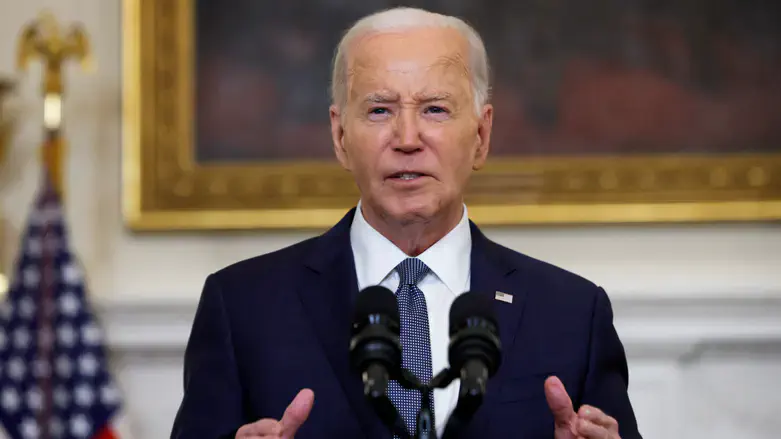
US President Joe Biden commented on Thursday on the efforts to achieve a hostage release deal in Gaza, expressing hope that a deal can be reached before January 20, when he leaves office.
“We’re making some real progress. I met with negotiators today…I think we’re seeing some progress,” Biden said during a briefing with administration officials, which dealt mostly with the wildfires in Los Angeles.
“I know hope springs eternal, but I’m still hopeful that we can have a [deal]. Hamas is the one getting in the way of that right now, but I think we may be able to get that done. We need to get it done,” he added.
On Wednesday, US Secretary of State Antony Blinken stated that a hostage and a ceasefire deal is close.
"In the Middle East, we're very close to a ceasefire and hostage agreement," he said. "I hope that we can get it over the line in the time that we have left. But if we don't, then the plan that President Biden put forward for a ceasefire/hostage deal will be handed over to the incoming administration. And I believe that when we get that deal - and we'll get it - it will be on the basis of the plan that President Biden put before the world back in May."
He added that the Biden administration has "done an incredible amount of work on what follows a hostage and ceasefire agreement in terms of the necessary arrangements for Gaza's security, its administration, its reconstruction, a day after plan."
A senior Hamas source told Reuters earlier in the week that the terrorist organization has approved a list of 34 hostages that had been handed over by Israel.
The Prime Minister's Office denied the report, saying "Contrary to what was claimed, Hamas has yet to provide a list of hostages."
Qatar, the US and Egypt have all been serving as mediators in the negotiations between Hamas and Israel, which so far have made little progress as Hamas has rejected every proposal presented to it.
White House National security communications adviser John Kirby recently stated that the White House is "actively working" to broker a ceasefire-hostage agreement between Israel and Hamas, but also stressed that "Hamas is the obstacle" to an agreement.
Blinken made similar comments in an interview with The New York Times, saying a deal has been "so close on several occasions" and outlined the two main obstacles preventing a deal from being reached: Firstly, "Hamas, when they saw Israel under pressure publicly, they pulled back" from their previous agreement to a ceasefire and releasing hostages.
The other obstacle is Hamas' hope and belief that there would be a broader conflict, with Hezbollah, Iran, and other actors attacking Israel. If such a scenario played out, "Israel would have its hands full and Hamas could continue what it was doing."
